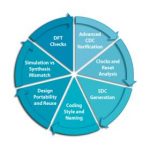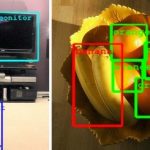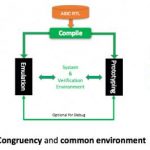We’ve become pretty good at reducing power in IoT edge devices, to the point that some are expected to run for up to 10 years on a single battery charge. But what if you wanted to go lower still or if, perhaps, your design can’t push power down to a level that would meet that goal? One area in systems where it can be challenging to further … Read More
Author: Bernard Murphy
Mentor gets Busy at DVCon
You’d expect Mentor to be covering a lot of bases at DVCon and you wouldn’t be wrong. They’re hosting tutorials, a lunch, papers, posters, there’s a panel and of course they’ll be on the exhibit floor. I’ll start with an important tutorial that you really should attend, Monday morning, on creating Portable Stimulus Models… Read More
Mentor Plays for Keeps in Emulation
EDA has always been a fiercely competitive market, no more so than in emulation where the clash of claims and counter-claims can leave those of us on the sidelines wondering who’s really on top. Sales are the obvious indicator but leadership there flips back and forth between product releases. That makes Mentor’s choice to play … Read More
Aldec Rounds Out ALINT-PRO Checker
If there’s anyone out there who still doesn’t accept the importance of static RTL verification in the arsenal of functional verification methods, I haven’t met any recently. That wasn’t the case in my early days in this field. Back then I grew used to hearing “I don’t make mistakes in my RTL”, “I’ll catch that in simulation”, “My editor… Read More
The Next Big Thing in Deep Learning
I mentioned adversarial learning in an earlier blog, used to harden recognition systems against bad actors who could use slightly tweaked images to force significant misidentification of objects. It’s now looking like methods of this nature aren’t just an interesting sidebar on machine learning, they are driving major advances… Read More
DVCon San Jose February 27th – March 2nd
DVCon is fast approaching, less than 3 weeks away. As a verification geek, this must be one of my favorite conferences, so I’ll be there; you’ll see me at tutorials, presentations and wandering around the Exhibit hall. (Pictures here from the 2016 DVCon – many of the same attendees will be at this year’s conference after all :cool:)… Read More
Notes from the Neural Edge
Cadence recently hosted a summit on embedded neural nets, the second in a series for them. This isn’t a Cadence pitch but it is noteworthy that Cadence is leading a discussion on a topic which is arguably the hottest in tech today, with this range and expertise of speakers (Stanford, Berkeley, ex-Baidu, Deepscale, Cadence… Read More
Aspirational Congruence
When talking to suppliers about their products, conversation tends to focus heavily on what they already have and why it is the answer to every imaginable need in their space. So it’s refreshing when a vendor wants to talk about where customers want to go without claiming they already have the answer wrapped up in a bow. I recently … Read More
Verifying Design for In-Car Networks
Once upon a time the role of electricity in a car was pretty modest: spark plugs, alternator, lighting, some simple instrumentation and maybe heating, all supported by an equally simple wiring harness (my wife has a 1962 Morris Minor, so I know exactly what the whole wiring harness looks like). How times have changed. Now most or … Read More
An Easy Path to Bluetooth 5-enabled SoC Design
Bluetooth (BT) was never a bit-player in communication but what surprised me is that is already dominating the market, at least as measured by radios sold, and is likely to extend that lead over the next 5 years. Particularly impressive is that BT already leads cellular and WiFi. This strength is certainly influenced by sales into… Read More
















Semidynamics Unveils 3nm AI Inference Silicon and Full-Stack Systems